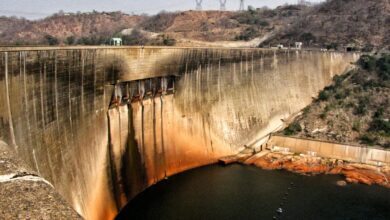
In an effort to boost the faltering local economy, good governance campaigner Peter Mulenga from the Copperbelt has advocated for a drastic adjustment in Zambia’s trade balance.
According to Mr. Mulenga, Zambia’s trade balance is unfavorable since imports of goods are significantly higher than exports.
According to him, the government should grow important industries including agriculture, mining, and manufacturing in order to enhance the local trade balance.
“The fundamental problem that Zambia as a nation faces at present is one of supply. The supply side of the economy has not had any radical changes since the one party era whereas the demand side of the economy has changed systematically and exponentially with the booming population and the growing middle class which itself is a function of education, donor activities, better business opportunities etc.These implication of this differential growth of the supply side of the economy and the demand side of the economy implies that foreign exchange shortages as well as other negatives effects of such shortages must always be expected. While this theory may not fully explain the recent forex, meal mealie shortages in towns like Nakonde etc, a set of reasons behind such shortages is incomplete without the differential growth thesis,” Mr. Mulenga said.
“At the present regime of economic development, this is the fundamental problem and government efforts must focus on striking a balance between the two but essentially by making positive and radical structural changes on the supply side of the economy. Monetary policy is important, but it surely plays a relatively pale role in the whole scheme of things because of the stage of our economic development as well as the general morphology of our economy at present. My examination of the import and export time series data for Zambia up to 2022 unveils that, not only does the country import more than it exports over time, but also that the gap between imports and exports has been widening and even more so, recently such that a slanted V-shape is markedly visible when the two quantities are mapped on a two dimensional space of value and time.”
“The increasing differential growth of imports and exports, where imports grow faster implies that the nation’s ability to generate foreign exchange (which it gets when it sells to overseas consumers) lags behind its ability to spend it. Assuming that exports are the major sources of foreign exchange, such a situation inevitably leads to potential foreign exchange shortages. The shortages are even more likely if the growth rate of imports departs significantly from its past levels (that is if there is an extra increase in imports growth while exports stay at roughly past growth rates, or when exports stagnate more than before).The data shows that imports have grown considerably more, reaching about 3 billion dollars recently, implying that while the asymmetric growth rates in imports and exports is clearly a problem, there is yet another one,” he continued.
Mr. Mulenga called for radical changes to the supply side of the local economy.
“The most reliable and effective long term solution is to induce radical structural changes on the supply side of the economy to ensure that the nation is able to generate enough exports that will earn the nation sufficient foreign exchange. Most of the foreign exchange that comes into the nation is accounted for by Copper earnings however it is a well known fact that all mining companies have their earnings returned overseas and only return funds for supplier payment and wages. The downside of relying on one commodity becomes apparent when one notes that the forecasts for copper demand show a future decrease. Policy makers in Zambia therefore need to seriously think about introducing, and encouraging the adoption of high yielding varieties of non-traditional crops such as soybeans, cowpeas and other oilseeds (biofuels). This is because given the ever-increasing prices of crude oil, Western efforts for increasing biodiesel and solar energy will continue to increase. Moreover as the economies of China and India continue to grow together with their livestock industry, their demand for vegetable oils, soybean oil cakes and other crop based feedstuffs may be set to increase,” he said.
On entrepreneurship, Mr. Mulenga said:”For the long term, there must be a deliberate effort to encourage export-oriented entrepreneurship. This could be done not only by the government’s taxation policy and other efforts; the third sector could also play a vital role. NGOs need to have programs that aim to give their clientele an ability to be part of the exporting community where possible and strengthen agricultural or general value chains. Education programs should also be tailored to develop entrepreneurial skills in future graduates. The demand side of the economy needs to be controlled in manners that will not reduce peoples’ welfare. The following can be considered: While it would be unreasonable to try to produce everything, some items that demand foreign exchange constantly are those which could be domestically produced. The government and the private sector need to do what it takes to intensify efforts to erect plants for sufficient cement and even fertilizer production and ensure that these are available domestically at reasonable prices. These will save foreign exchange. Zambians are building houses everywhere and the resultant demand for cement and other foreign building materials poses pressure on forex.”
Mr. Mulenga further advocated efficiency in the civil service.
“The civil service is very inefficient and deliberately slow, and so are many parastatals. Without mentioning examples, note that in some of these parastatals, it can take as long as 2 years for a transaction that should normally take one month only, to complete. The reason is partly that no one or too few in those institutions really know why they are there and how their supposed pieces of work feed into others in order to contribute to greater institutional goals… obviously some of these may be sorted by supervision and training but a good part can only change with serious legislative reforms. Unless these change their ways, 10 years from now, Zambia will be at this same place. Low Labour productivity, volatile exchange rates, inflation, no forex, low incomes, untold poverty, and a mushrooming of a few rich people. Can we therefore please place the right people in the right places and hold them to account when they fail to deliver even if they may be comrades, it’s such accountability that will ensure progress .I should finish by saying again, no one loses by trying to do things differently and positively … Good advice given for free has to be cherished and not everyone who advises in this manner cannot do without a government job. My wish, as has always been, is that ‘this’ government succeeds,” Mr. Mulenga said.










